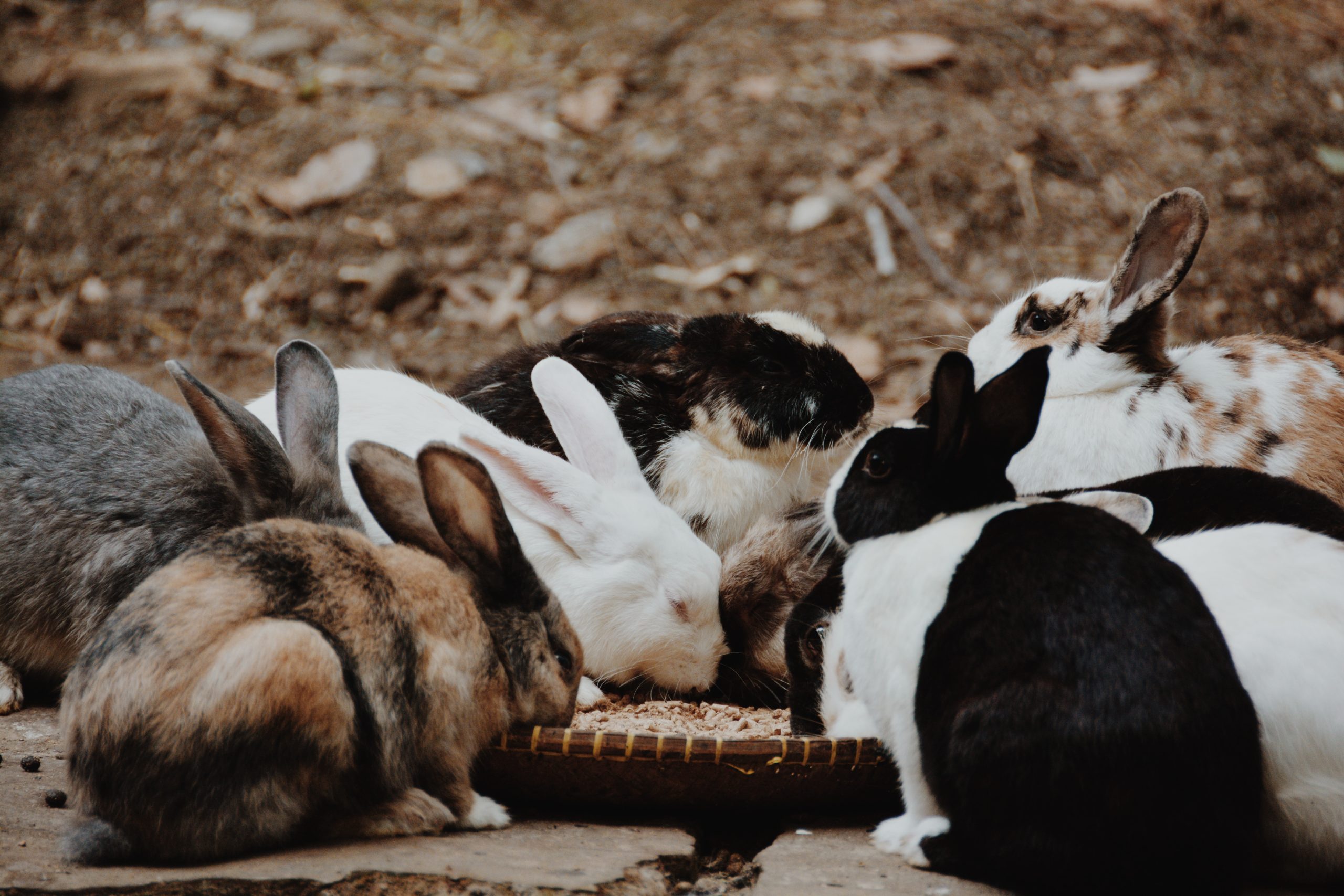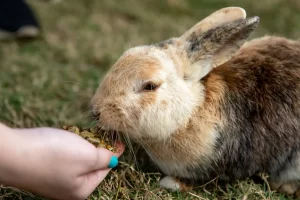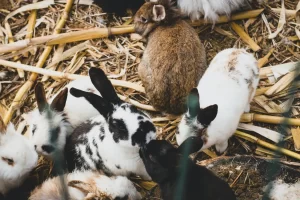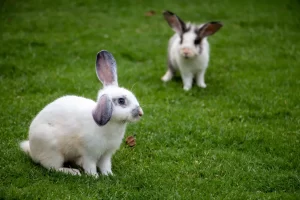Did you know that rabbits can suffer from constipation just like humans? If your furry friend is experiencing this uncomfortable condition, don’t fret! There are simple and effective ways to treat rabbit constipation at home.
In this article, you will learn how to identify the symptoms, make dietary changes, and use hydration techniques to relieve your rabbit’s constipation. With the right knowledge and care, you can help your beloved bunny hop back to good health in no time.
In This Article
- 1 Key Takeaways
- 2 Understanding Rabbit Constipation
- 3 Identifying the Symptoms of Constipation in Rabbits
- 4 Dietary Changes to Relieve Rabbit Constipation
- 5 Hydration Techniques for Constipated Rabbits
- 6 Massage and Exercise for Rabbit Digestive Health
- 7 Natural Remedies for Rabbit Constipation
- 8 Preventing Constipation in Rabbits
- 9 When to Seek Veterinary Assistance for Rabbit Constipation
- 10 Frequently Asked Questions
- 10.1 Can Rabbits Get Constipated From Eating Too Many Treats?
- 10.2 How Long Does It Usually Take for Dietary Changes to Relieve Rabbit Constipation?
- 10.3 Are There Any Specific Exercises That Can Help With Rabbit Constipation?
- 10.4 Can Stress or Changes in Environment Contribute to Rabbit Constipation?
- 10.5 Are There Any Over-The-Counter Medications That Can Be Used to Treat Rabbit Constipation?
- 11 Conclusion
Key Takeaways
- Provide a balanced diet with high-fiber content, including fresh vegetables and hay, to prevent rabbit constipation.
- Ensure access to clean and fresh water at all times to prevent dehydration and promote regular bowel movements.
- Gentle massage and increased water intake can help treat rabbit constipation.
- Incorporate foods with laxative effects like papaya or pineapple into the rabbit’s diet to relieve constipation.
Understanding Rabbit Constipation
Do you know why rabbit constipation occurs and how to prevent it?
Rabbit constipation occurs when there’s a blockage in the digestive system, preventing the normal passage of stool. This can be caused by various factors such as a lack of fiber in their diet, dehydration, or dental issues.
To prevent rabbit constipation, it’s important to provide them with a balanced diet that includes a high-fiber content. Fresh vegetables and hay should be the main components of their diet. Additionally, ensuring they’ve access to clean and fresh water at all times is crucial.
If your rabbit does develop constipation, there are treatment options available. These include gentle massage, increasing their water intake, and providing them with foods that have a laxative effect, such as papaya or pineapple.
Identifying the Symptoms of Constipation in Rabbits
If your rabbit is experiencing constipation, you should look out for symptoms such as reduced appetite, bloating, and small, hard droppings. Rabbit constipation can be caused by various factors, including a lack of dietary fiber, dehydration, or a sedentary lifestyle.
To treat constipation in rabbits, there are a few options you can consider. First, you can increase the fiber intake in their diet by providing more hay or leafy greens. Additionally, ensuring that your rabbit has access to fresh water at all times can help prevent dehydration and promote regular bowel movements. Encouraging exercise by providing opportunities for your rabbit to hop around and explore can also help alleviate constipation.
If these measures don’t improve your rabbit’s condition, it’s important to consult with a veterinarian for further evaluation and treatment options. Remember, prompt attention to constipation can prevent more serious health issues in your furry friend.
Dietary Changes to Relieve Rabbit Constipation
You can relieve rabbit constipation by incorporating more high-fiber foods, such as vegetables and hay, into their diet. Adding these foods not only helps prevent constipation, but also promotes overall digestive health in rabbits.
Fiber is essential for rabbits as it helps maintain a healthy gut and prevents blockages in their digestive system. Vegetables like leafy greens, carrots, and broccoli are some of rabbits’ favorite foods and are excellent sources of fiber.
You should also ensure that your rabbits have constant access to fresh hay, which is a staple in their diet and provides the necessary fiber content.
Hydration Techniques for Constipated Rabbits
To alleviate constipation in your rabbit, make sure they’re well-hydrated by providing fresh water and incorporating watery vegetables like cucumber and celery into their diet. Adequate water intake is crucial for maintaining regular bowel movements and preventing constipation.
In addition to water, you can also consider fluid therapy as a method to relieve constipation in rabbits. Fluid therapy involves administering fluids directly into the rabbit’s body either orally or intravenously to rehydrate and stimulate the digestive system. This can help soften the stool and facilitate its passage through the intestines.
Remember to consult with a veterinarian before attempting fluid therapy at home, as they can provide guidance on the appropriate amount and method of administration.
Ensuring your rabbit stays hydrated is a key step in managing constipation and promoting their overall well-being.
Massage and Exercise for Rabbit Digestive Health
Regular massage and exercise can greatly improve your rabbit’s digestive health, promoting proper digestion and preventing gastrointestinal issues. When it comes to rabbit constipation prevention and treatment options, these simple techniques can make a big difference. Massage helps to stimulate the digestive system and relieve any blockages or discomfort your rabbit may be experiencing. Exercise, such as gentle hopping or running, encourages movement in the intestines and helps to keep things flowing smoothly. To further emphasize the importance of massage and exercise, here is a table highlighting the benefits:
| Benefits of Massage and Exercise for Rabbit Digestive Health |
|---|
| Stimulates Digestive System |
| Relieves Blockages and Discomfort |
| Encourages Movement in Intestines |
Natural Remedies for Rabbit Constipation
In order to alleviate rabbit constipation, consider using a combination of natural remedies like increasing fiber intake and incorporating gentle exercise into their daily routine. Here are three effective methods to help your furry friend find relief:
- High fiber diet: Feed your rabbit plenty of fresh hay, leafy greens, and vegetables rich in fiber. This will promote healthy digestion and prevent constipation.
- Herbal remedies: Certain herbs like chamomile, dandelion, and raspberry leaf have been known to aid in relieving constipation in rabbits. Consult with a veterinarian knowledgeable in herbal treatments to ensure safety and proper dosage.
- Alternative treatments: Acupuncture and abdominal massage can stimulate the digestive system and help alleviate constipation. Seek the guidance of a qualified professional experienced in treating rabbits.
Preventing Constipation in Rabbits
Make sure you provide your rabbit with at least two cups of fresh water daily to prevent constipation. Ensuring that your furry friend stays hydrated is essential for maintaining a healthy digestive system. In addition to water, there are other dietary supplements and home remedies that can help prevent constipation in rabbits. Take a look at the table below for some examples:
| Dietary Supplements | Home Remedies |
|---|---|
| Papaya | Pumpkin |
| Pineapple | Apple cider vinegar |
| Probiotics | Flaxseed oil |
| Digestive enzymes | Chamomile tea |
| Psyllium husk | Oat bran |
These supplements and remedies can help regulate your rabbit’s bowel movements and prevent constipation. However, it’s important to consult with a veterinarian before introducing any new supplements or remedies into your rabbit’s diet. Remember, your rabbit’s health is our priority, and by providing the right care, you can ensure their well-being and happiness.
When to Seek Veterinary Assistance for Rabbit Constipation
If your rabbit’s constipation persists or worsens despite home remedies, it’s important to seek veterinary assistance as soon as possible. Regular veterinary check-ups are crucial for rabbits to ensure their overall health and well-being.
Here are some potential complications of untreated rabbit constipation:
- Gut Stasis: Constipation can lead to a condition called gut stasis, where the movement of food through the digestive system slows down or stops completely. This can result in a lack of appetite, bloating, and discomfort for your rabbit.
- Megacolon: Prolonged constipation can cause the colon to enlarge and lose its ability to contract and move stool effectively. This condition, known as megacolon, can lead to severe pain and even obstruction of the digestive tract.
- Dehydration: Constipated rabbits may become dehydrated due to decreased water intake and increased fluid loss. Dehydration can further exacerbate the constipation and lead to additional health complications.
Frequently Asked Questions
Can Rabbits Get Constipated From Eating Too Many Treats?
Yes, rabbits can get constipated from eating too many treats. It’s important to maintain a balanced rabbit diet, as an excessive intake of treats can disrupt their digestive system and lead to constipation.
How Long Does It Usually Take for Dietary Changes to Relieve Rabbit Constipation?
It usually takes a few days for dietary changes to relieve rabbit constipation. Natural remedies like increasing fiber and water intake can help. Be patient and monitor your rabbit’s progress.
Are There Any Specific Exercises That Can Help With Rabbit Constipation?
To relieve rabbit constipation, incorporating specific exercises can be beneficial. Natural remedies, such as gentle belly massages or encouraging movement through obstacle courses, can help regulate their digestive system.
Can Stress or Changes in Environment Contribute to Rabbit Constipation?
Stress and changes in environment can contribute to rabbit constipation. Proper stress management and providing environmental enrichment can help prevent constipation and promote a healthy digestive system for your rabbit.
Are There Any Over-The-Counter Medications That Can Be Used to Treat Rabbit Constipation?
Over-the-counter remedies and natural remedies can help treat rabbit constipation. It’s important to consult with a veterinarian before using any medications. They can recommend safe options and provide guidance on proper usage.
Conclusion
In conclusion, by understanding the symptoms and causes of rabbit constipation, making dietary changes, ensuring proper hydration, and implementing massage and exercise techniques, you can effectively treat and prevent constipation in your furry friend.
However, it’s important to remember that if the condition persists or worsens, it’s best to seek veterinary assistance.
Remember, a healthy and well-functioning digestive system is crucial for your rabbit’s overall well-being.
So, take proactive measures to keep your furry friend happy and healthy.





